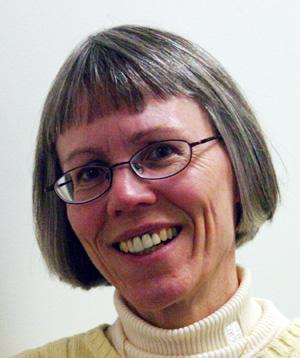
By Barb Arland-Fye
On the drive home from our older son’s apartment Saturday night, a fleeting image appeared in my field of vision. Was that a young man crouched on the side of the road with a pleading look on his face?
I thought it might be my imagination because my husband, who was driving, and our younger son, sitting behind me in the passenger seat, hadn’t said a thing as we drove by.
But I couldn’t get the image out of my mind.
“We’ve got to turn around, Steve,” I told my husband. “I think I saw someone who might be hurt on the side of the road.”
His look was skeptical, but he turned around anyway and returned to the spot where a teenager was huddled over a broken-down bicycle in an industrial part of town.
Steve wasn’t so sure it was a good idea to pick up a stranger; maybe we could call the police, he suggested. But with three of us in the car, I said we were safe and the teen obviously needed help.
Dressed in a dark jacket and jeans, he was polite and apologetic. Could we give him a ride home — to another city, 11 miles away in the opposite direction?
Steve and I looked at each other. How could we not give him a ride home? It was cold outside and the area was deserted.
He got into the back seat, sitting next to our younger son, Patrick. We asked his name. He said it was Kenneth. Our conversation was brief, but we learned he was in high school and had ridden his bicycle many, many miles to see his girlfriend who lived in our community.
I asked if he had any reflective gear on his bike. “This is a really dangerous stretch of roadway to bike on,” I commented. “And, if you’re going to ride a bike in the dark you should really wear lighter-colored clothes,” I added.
We guessed Kenneth to be about 16, two years older than Patrick, who asked him what kind of bike he was riding.
That was about the limit of our conversation, until we dropped him off at the bottom of a bridge, where he had asked us to take him. He dashed off into the night toward the direction where he said he lived in an apartment building.
He had thrown a crumpled dollar bill in the back seat on his way out the door, apologizing that it was all he had on him. I insisted that he keep the money, but he felt a need to give us something.
On the drive back home, we talked about what had just happened. Steve thought we should have called the police and let them deal with Kenneth. Patrick shared his views about what “group” the teen belonged to, based on the clothes he wore.
Then we began speculating about the teenager’s motives, his family, background and living conditions. He’d said that his dad and sister didn’t have cell phones, so he couldn’t call them. None of his friends answered when he tried to call their cell phones, he added.
We were being judgmental, I told my family, and ought to end the discussion.
“What if that had been Colin who had been stranded on the road?” I asked Steve and Patrick. They were silent, hopefully in agreement. It would have broken my heart if Colin, who has autism, would have been the one needing help.
They might have been thinking back to New Year’s Eve, when we received a frantic call that Colin had disappeared. He showed up a short time later at a service station asking for help.
Patrick told me later he was glad that I insisted we stop to pick up the teenager and take him home. I told him it was what Jesus would expect us to do.








